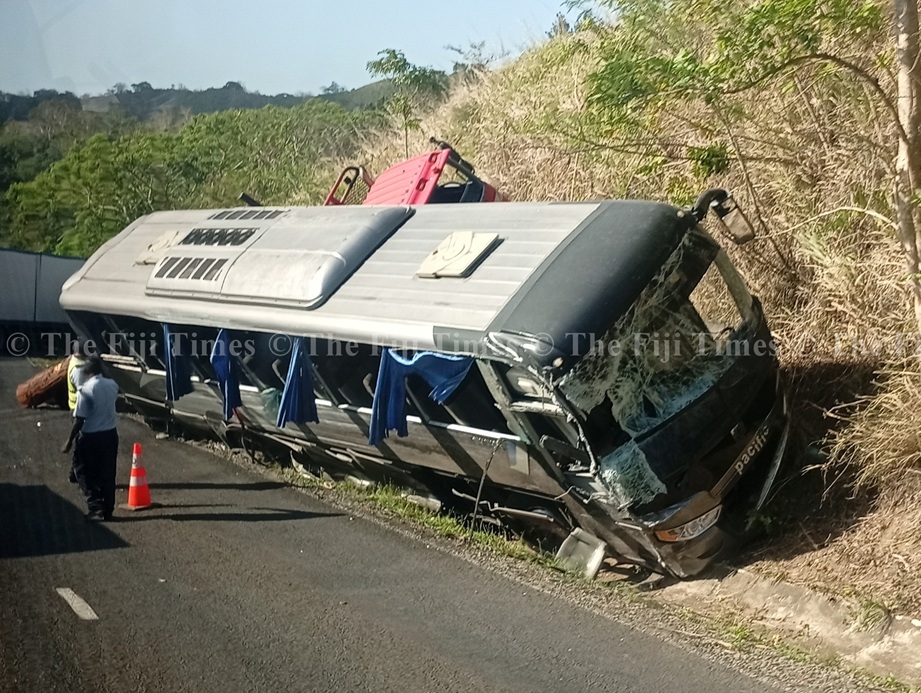One person is dead. Twenty-nine others are injured. Two serious road accidents in just days, and once again, we are talking about road safety.
The National Fire Authority confirmed the fatality along the Nabouwalu–Labasa highway on Monday when a bus collided with a truck, overturning it. Yesterday afternoon, 29 people were rushed to the Sigatoka Hospital after another crash at Semo Hill along the Queens Highway.
Different roads, different vehicles, same story! Another round of investigations. Another round of questions. Another reminder that our roads remain dangerous.
We talk about road safety every time tragedy strikes. We debate it, analyse it, and mourn. Then, as the smoke clears and the headlines fade, we move on. Until the next accident jolts us back into grief. But road safety shouldn’t be a conversation we have only in the wake of death. It should be part of our daily lives, part of our discipline, our culture, our responsibility.
The truth is, there are too many vehicles on our roads, too many reckless drivers, too many near misses that never make the news.
To a certain extent, some of us have accepted danger as normal. We treat speeding as a sport. We treat the rules as optional. And we’re shocked when lives are lost.
Accidents don’t just happen. They happen when we allow them. When we drive too fast for the conditions. When we take calls while behind the wheel. When we drink and drive. When we overtake on blind corners. In fact every decision we make on the road can change, or end a life.
So where do we want to stand? On the side of caution and care? Or on the side of recklessness and regret?
We expect authorities to act. The Government and its agencies must take a hard look at the system, from licensing, driver training, to road conditions. Many of our highways are littered with potholes. Road markings are fading. Signage is poor or missing altogether. Visibility at night is appalling. How can we preach safety when the infrastructure itself is unsafe?
Then there’s enforcement. The Police and the Land Transport Authority must step up. Random checks, speed traps, and breathalyzer tests are not harassment. They’re lifesaving interventions.
But enforcement alone is not enough. We need a mindset shift. A national culture of respect for the road.
That starts with each of us.
Drivers must slow down. Pedestrians must stay alert. Passengers must speak up when drivers behave dangerously. Schools should teach road safety as early as possible. Communities should hold awareness programs all year round.
We cannot afford to keep reacting to tragedy. The cost is too high. The dead don’t come back. The injured may never fully recover. Families are left grieving, forever changed. As we approach the festive season, let us remember that safety is not negotiable. The rules exist for a reason. The limits are there to save lives.
So, let’s change how we think about road safety. Let’s make it a habit, a shared responsibility, a daily commitment. Because at the end of the day, no party, no deadline, no destination is worth a life.
We all have a duty to keep our roads safe!



